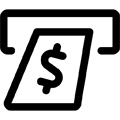Science
Teachers
6th Grade - Andrea Morrow
7th Grade - Sharon Taylor
8th Grade - Chrisondra Austin
6th Grade Science
Course Description:
The sixth grade general science curriculum is designed to provide students with a deep understanding of science and how it applies to everyday life. The course will allow students to gain an understanding of scientific processes and concepts through inquiry. Students will use their intellectual skills, knowledge, and behaviors to experience scientific literacy.
Goals of the Course:
- Provide quality instruction in order to produce quality scientist.
- Present and promote the integration of life, physical, and earth sciences.
- Provide students with many facets of learning focusing on a hands-on approach.
7th Grade Science
Course Description:
Seventh grade science students are given structured opportunities to engage in full and partial inquiries that lead to a specific goal. They will learn to value the scientific method. They will become confident in their ability to use the scientific method and develop skills to design and conduct experiments. They will also become more effective at scientific problem solving and logical thinking.
Goals of the Course:
- Provide quality instruction and opportunity to value scientific reasoning skills.
- Provide students with a wide variety of strategies to promote logical thinking.
8th Grade Science
Course Description:
Eighth grade science at Levey is an integration of all the natural sciences, presenting them as a single area of study. This integration is accomplished through the use of four instructional themes, which spiral facts and concepts. The four instructional themes are:
Energy, Systems & Interactions, Scale & Structure and Stability & Change.
The constructivist approach to learning will be used. The instructor will facilitate an atmosphere where students will design and direct activities. Drawing from these activities students will develop their own hands on activities, cooperative learning and critical thinking exercises, combined with real world applications. Students will be encouraged to apply observations and intuitions to situations and problems, by formulating hypothesis and drawing conclusions.
To reflect the diverse cultural heritage of our student population, the course will promote the understanding of how people from different cultures approach and solve the basic scientific problems that all humans have in living and learning.
A variety of assessment tools will be used, these will include individual performance assessment science journals and portfolios, as well as science projects. Individual needs of students will be met through an assortment of assessment and classroom activities, which incorporate a multiplicity of learning styles. All course content is closely aligned with the National Science Education Standards and the Michigan Science Education Curriculum Frameworks.







